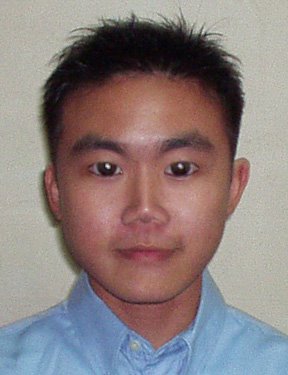DIRECT EVOLUTION OF A FULL PROFESSOR
goT an emAil from weN 妹, and she sAid she reAd thiZ articLe in her friend'Z bloG...whicH iz reAlly funnY, and everyone in the acAdemia shouLd appreciAte it!!!! it muZ be writteN bY some boRed fulL professoR....:
Title: DIRECT EVOLUTION OF A FULL PROFESSOR
Abstract
Success in academia is hypothesized to require specific phenotypes. In order to understand how such unusual traits arise, we used human clones to identify the molecular events that occur during the transition from a graduate student to professor. A pool of graduate student clones was subjected to several rounds of random mutagenesis followed by selection on minimal money media in the absence of dental insurance.
Students surviving this selection were further screened for the ability to work long hours with vending machine snacks as a sole carbon source; clones satisfying these requirements were dubbed "post-docs". In order to identify assistant professors from amongst the post-docs, this pool was further mutagenized, and screened for the ability to turn esoteric results into a 50 minute seminar.
Finally, these assistant professors were evaluated for their potential to become full professors in two ways: first, they were screened for overproduction and surface display of stress proteins such as Hsp70. Assistant professors that displayed such proteins (so-called "stressed-out" mutants) were then fused to the M13 coat protein, displayed on phages and passed over a friend and family members column, to identify those that were incapable of functional interactions. These were called full professors.
Although these mutants arose independently, they shared striking phenotypes. These included the propensity to talk incessantly about their own research, the inability to accurately judge the time required to complete bench work, and the belief that all their ideas constituted good thesis projects. The linkage of all these traits suggests that these phenotypes are coordinately regulated. Preliminary experiments have identified a putative global regulator. Studies are currently being conducted to determine if overexpression of this gene product in post-docs and grad students can speed up the grad student-full professor evolutionary process.
nitezzZ...
illZ...
Title: DIRECT EVOLUTION OF A FULL PROFESSOR
Abstract
Success in academia is hypothesized to require specific phenotypes. In order to understand how such unusual traits arise, we used human clones to identify the molecular events that occur during the transition from a graduate student to professor. A pool of graduate student clones was subjected to several rounds of random mutagenesis followed by selection on minimal money media in the absence of dental insurance.
Students surviving this selection were further screened for the ability to work long hours with vending machine snacks as a sole carbon source; clones satisfying these requirements were dubbed "post-docs". In order to identify assistant professors from amongst the post-docs, this pool was further mutagenized, and screened for the ability to turn esoteric results into a 50 minute seminar.
Finally, these assistant professors were evaluated for their potential to become full professors in two ways: first, they were screened for overproduction and surface display of stress proteins such as Hsp70. Assistant professors that displayed such proteins (so-called "stressed-out" mutants) were then fused to the M13 coat protein, displayed on phages and passed over a friend and family members column, to identify those that were incapable of functional interactions. These were called full professors.
Although these mutants arose independently, they shared striking phenotypes. These included the propensity to talk incessantly about their own research, the inability to accurately judge the time required to complete bench work, and the belief that all their ideas constituted good thesis projects. The linkage of all these traits suggests that these phenotypes are coordinately regulated. Preliminary experiments have identified a putative global regulator. Studies are currently being conducted to determine if overexpression of this gene product in post-docs and grad students can speed up the grad student-full professor evolutionary process.
nitezzZ...
illZ...


0 Comments:
Post a Comment
<< Home